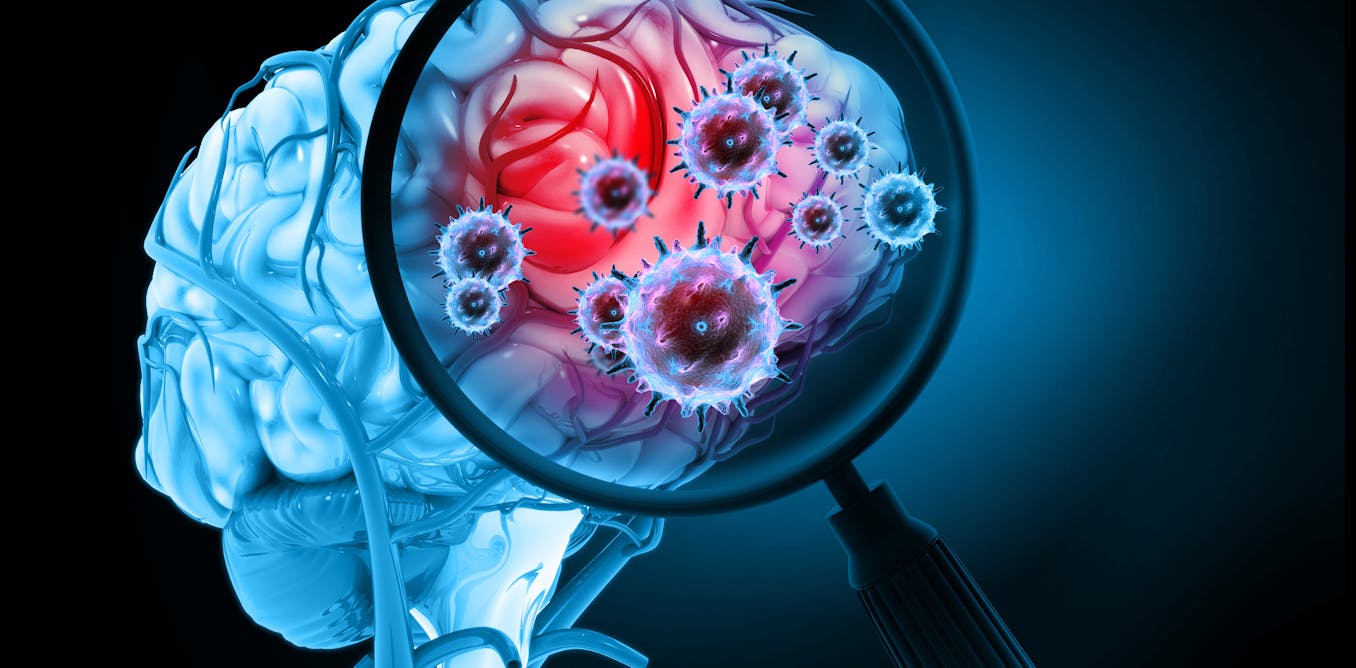How frontotemporal dementia, the syndrome affecting Bruce Willis, changes the brain – research is untangling its genetic causes
FTD leads to changes in personality and behavior. Understanding its genetic and molecular causes could lead to new ways to treat neurodegenerative diseases.
Feb. 22, 2023 • ~8 min
Cells routinely self-cannibalize to take out their trash, aiding in survival and disease prevention
Cells degrade and recycle damaged parts of themselves through a process called autophagy. When this “self-devouring” goes awry, it may promote cancer and neurodegenerative disease.
Feb. 8, 2023 • ~9 min
Vaccination to prevent dementia? New research suggests one way viral infections can accelerate neurodegeneration
Inflammation and damage to the olfactory system from shingles, COVID-19 and herpes infections may contribute to Alzheimer’s disease.
Jan. 18, 2023 • ~9 min
Harnessing the brain's immune cells to stave off Alzheimer's and other neurodegenerative diseases
Microglia, immune cells disguised as brain cells, are known as the janitors of the brain. Dialing up their usual duties just enough could provide an avenue to treat neurodegenerative disease.
Dec. 7, 2022 • ~9 min
Expanding Alzheimer's research with primates could overcome the problem with treatments that show promise in mice but don't help humans
Nonhuman primates like rhesus monkeys share certain characteristics with people that may make them better study subjects than mice for research on neurodegenerative diseases.
Aug. 31, 2022 • ~9 min
Many drugs have mirror image chemical structures – while one may be helpful, the other may be harmful
From thalidomide to resveratrol, molecules with the exact same chemical properties can have drastically different effects in the body depending on how they’re arranged in space.
Aug. 3, 2022 • ~7 min
/
2







